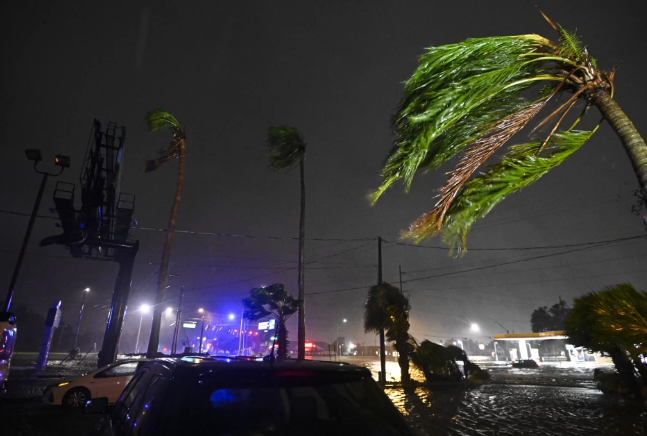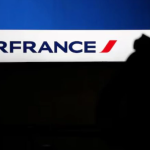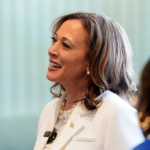Hurricane Milton struck Florida’s western coast on Wednesday, bringing destructive winds and life-threatening storm surges to a region still recovering from a previous storm just two weeks ago. The Category 3 storm made landfall near Siesta Key, a densely populated area on Florida’s Gulf Coast, unleashing maximum winds of up to 105 miles (165 kilometers) per hour.
Before landfall, the storm triggered tornadoes, with reports suggesting fatalities after one twister struck a senior living community on the state’s eastern coast. As the hurricane’s impact unfolded, President Joe Biden was briefed on the situation, as political responses are expected to face scrutiny with only four weeks until the U.S. presidential election.
The National Hurricane Center warned of dangerous tidal surges set to inundate Florida’s low-lying Gulf Coast. By late Wednesday, at least 1.6 million households and businesses were without power across the state, as reported by poweroutage.us.
Milton is forecasted to continue its destructive path inland, heading towards the Atlantic Ocean, with Orlando — home to Disney World, which closed due to the storm — in its direct line. Along Florida’s western coastline, cities like Sarasota experienced violent winds and torrential rain, leaving streets deserted and businesses fortified with sandbags. In Sarasota, wind gusts shattered windows in waterfront buildings, and trees were bent nearly horizontal by the force of the storm.
In Tampa and Sarasota, airports were shut down indefinitely as the storm raged. Florida Governor Ron DeSantis urged residents who hadn’t evacuated to remain indoors, emphasizing the dangers of floodwaters and storm surges, stating, “Flood waters and rushing storm surge are very dangerous.”
Hurricane Milton hit Florida just two weeks after another devastating storm, Hurricane Helene, which left a trail of destruction across the southeastern U.S., killing at least 235 people. Emergency crews are still working to provide relief in the aftermath of Helene, which caused widespread flooding in Florida and severe damage in inland regions like western North Carolina.
Randy Prior, a 36-year-old pool business owner, expressed his anxiety as Milton approached, recalling the devastation caused by the earlier storm. “I am nervous. This is something we just went through with the other storm — ground saturated, still recovering from that,” he told AFP. Despite the danger, Prior planned to ride out Milton at home, having already endured Helene.
In the political arena, U.S. presidential candidate Donald Trump has attempted to capitalize on the storms, falsely claiming that relief aid is being diverted from local residents, many of whom are Republican supporters, to migrants. President Joe Biden, in a statement from the White House on Wednesday, condemned Trump’s remarks as part of an “onslaught of lies.”
“There’s been a reckless, irresponsible, and relentless promotion of disinformation and outright lies,” Biden said, visibly frustrated. Vice President Kamala Harris, who is set to face Trump in the November 5 election, echoed the President’s criticism in an interview with CNN, stating, “It is dangerous, it is unconscionable, frankly, that anyone who’d consider themselves a leader would mislead desperate people to the point that those desperate people would not receive the aid to which they are entitled.”
Scientists have pointed to global warming as a factor in the increasing intensity of storms like Helene and Milton, with warmer ocean temperatures fueling stronger winds and more dangerous conditions.



